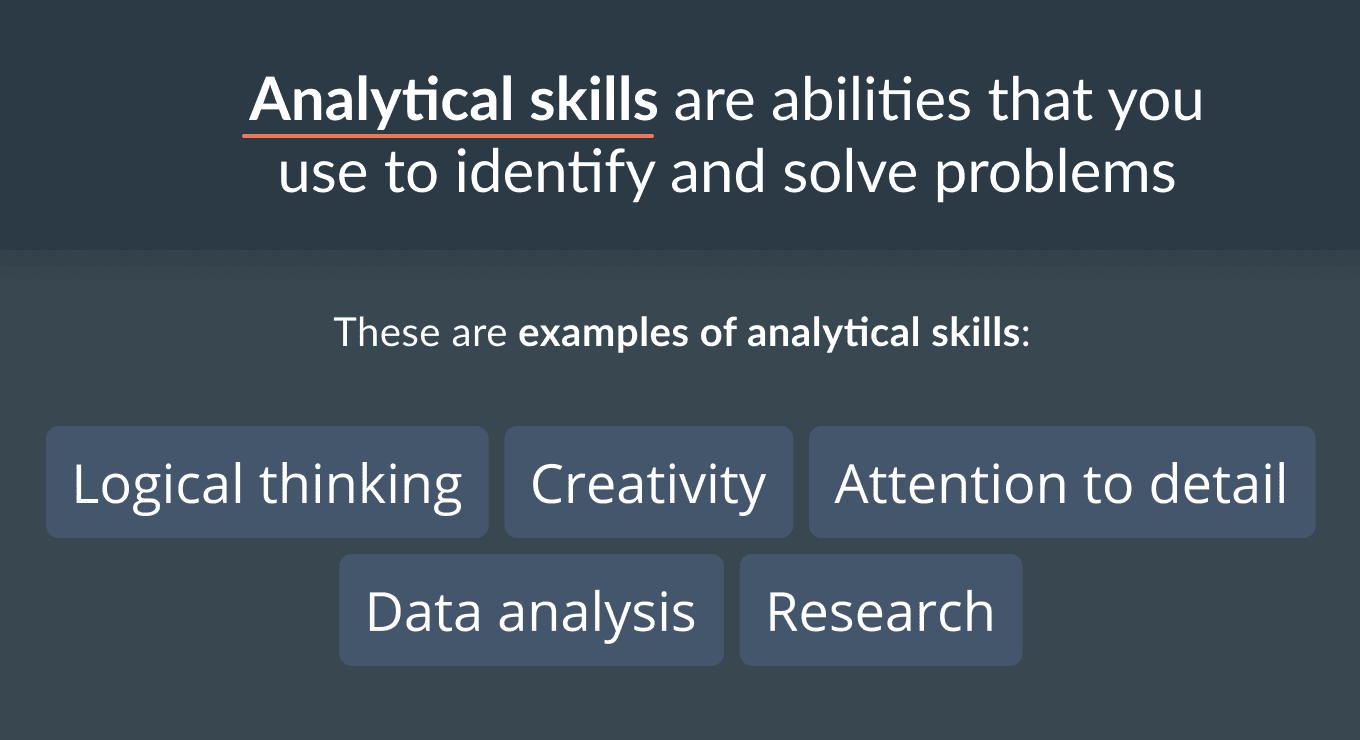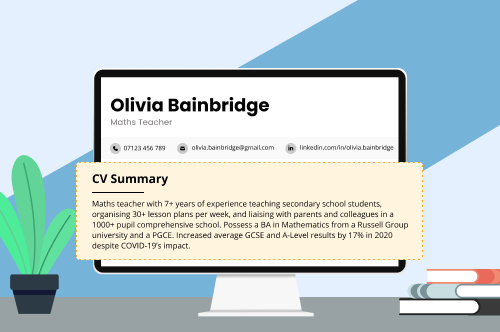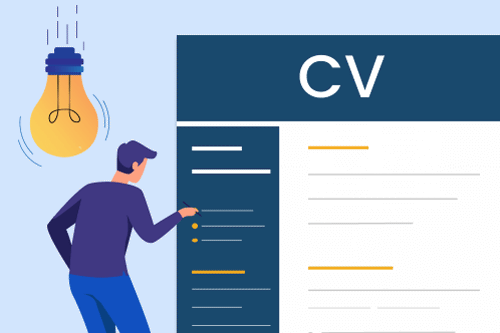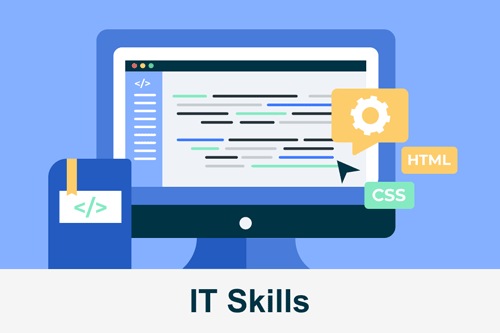Analytical skills are among the most sought-after soft skills for the workplace.
So to help you show employers you have the analysing ability they need, we define analytical skills, list the most important ones, and give you examples of analytical skills interview questions and answers below.
What are analytical skills?
Analytical skills — sometimes called analytical thinking or problem-solving skills — are a type of CV ability that you use to identify and solve problems with the information you have.
You’ll use analytical skills if your responsibilities include:
- budgeting
- data analysis
- detecting patterns
- brainstorming
- interpreting new information
- developing solutions
The term ‘analytical skills’ is versatile, so it can mean different things to different employers.
Reading a job description closely will help you understand what kind of analytical skills to emphasise when you write your CV.
5 analytical skills examples (with CV-ready bullet points)
Below we give you five examples of analytical skills and show how you can describe them in your job application:
CV makers include pre-written work history bullet points so you can create your CV faster — generally within minutes.
1. Logical thinking
Logical thinking is the ability to process information and reach conclusions that make logical sense. To properly analyse anything — whether in your work or personal life — you’ll need to be able to think logically.
For instance, if you’re in a brainstorming session at work or planning a group project at school, logical thinking enables you to present plausible ideas and possible solutions to any problems that come up.
Examples of logical thinking on a CV
- Implemented a strategic problem-solving approach to address unexpected integration challenges, resulting in the project being completed 15% under budget
- Conducted detailed data analysis using advanced Excel functions across a dataset of 10,000+ entries, identifying key trends to inform critical decisions
- Initiated and executed a process optimisation strategy in the manufacturing line, which led to a 25% increase in production efficiency
2. Creativity
Creativity is the ability to think of original ideas.
This skill is often associated with marketing, communications, or design roles, but it can be applied to problem solving in any industry.
Examples of creative analytical skills on a CV
- Implemented an innovative product design, increasing customer satisfaction by 20%
- Created a new marketing campaign that increased sales by 30%
- Cut production time by 15% by proposing a new workflow process
3. Attention to detail
One of the most important analytical skills examples is attention to detail. Employers want to see that you pay attention to the little things about your work because doing so indicates they can trust you to handle tasks carefully and thoroughly.
Attention to detail helps you:
- discover patterns and discrepancies in data
- write error-free and easy-to-understand emails and instant messages
- perform quality control tasks
Examples of attention to detail on a CV
- Trusted by the CEO as her go-to proofreader for important written communication to internal and external clients
- Identified a potential risk in a project plan, leading to a change of approach that reduced costs by 30%
- Spot-checked a report for errors, leading to the discovery of a £10K miscalculation
4. Data analysis
Data analysis is the process of gathering, organising, and interpreting data to develop solutions.
In the UK, the need for data analysis skills is growing rapidly, particularly in roles emphasising digital skills. The government has estimated that digital data analysis skills will grow by 33% between 2021 and 2026, and roughly half of UK businesses are recruiting for roles that require data skills.
Examples of data analysis skills on a CV
- Analysed company data, leading to the discovery of patterns that informed a successful new product launch
- Developed a data model that reduced the time to create monthly reports from 20 hours to 2 hours
- Designed a new dashboard that allowed management to see key metrics at a glance
5. Research
Research involves finding new information to identify issues, solve problems, and make decisions. This analytical skill is valuable to all industries, but some jobs especially rely on research skills. These include:
- research scientist
- marketing researcher
- business analyst
- journalist
- academic
If you’re applying for a research job in academia, learn how to write an academic CV that highlights your relevant analytical skills.
Because research skills are so broadly transferable, you can demonstrate them on your CV in many ways.
Optimising your education section is one of those methods. Common university modules like research methods, data analysis, or decision sciences indicate the ability to do independent research, as can any independent projects you completed while you were in university.
Examples of research-related analytical skills on a CV
- Conducted market research that informed a strategy change, resulting in a 15% increase in customer retention
- Analysed competitors’ products and pricing, leading to the development of a new pricing strategy that increased profits by 20%
- Researched the latest trends in the industry, leading to the creation of a new product that won an innovation award
Interview questions about analytical skills and how to answer them
If analytical skills are important to the job you’re applying for, you’re likely to be asked about them in the interview.
Six common interview questions you can prepare for are:
Often what’s most important about your answer isn’t the solution you propose, but the reasoning behind it. So prepare an explanation for your solution and stick to it.
Prepare by answering mock analytical skills questions with a friend or family member before the interview. Also, you can Google interview questions for similar positions and practise using techniques like the STAR (situation, task, action, result) method to link your answers to previous experiences and achievements.
Here’s an example of how to answer the first question in the list above using the STAR method:
Frequently asked questions about analytical skills
Here are the answers to three frequently asked questions about analytical skills:
1. Why are analytical skills important?
Analytical skills are important in the workplace because they allow people to solve complex problems, identify patterns, and draw conclusions based on data. In today’s world, where data is increasingly important, being able to analyse information and make decisions based on that analysis is a key skill for success.
2. What jobs require analytical skills?
Analytical skills are necessary in a wide range of jobs, but here are some jobs in which analytical skills are particularly important:
- Data scientists need to be able to analyse large sets of data and draw conclusions from them.
- Engineers need to be able to solve complex problems, design new systems, and optimise existing systems.
- Doctors need to be able to interpret medical test results, understand complex medical conditions, and make diagnoses.
- Marketers analyse market research and gauge the impact of their marketing campaigns.
3. Why are analytical skills essential for managers?
Analytical skills are essential for managers because they help them make informed decisions, understand the implications of those decisions, and measure the results.
In addition, analytical skills can help managers identify problems and trends, as well as find creative solutions. Good managers use strong analytical skills to effectively lead teams and make sound decisions that drive business success.
Reddit users frequently ask these questions about analytical skills
We sourced these common questions about analytical skills from Reddit:
1. How do I improve my analytical skills?
Here’s how to improve your analytical skills:
- Look for training opportunities at your current job: Ask your manager what training opportunities are available. And if a course you’d like to take isn’t offered already, you might be able to convince your employer to cover the cost — if you can explain how doing so will benefit the company.
- Take accredited courses in your own time: If you want to develop a specific analytical skill, such as data analysis using Excel, consider getting a professional qualification from a recognised body, like the CDP Certification Service in the UK.
- Practise through freelance work: Use a freelance marketplace like Fiverr, 99Designs, or Freelancer.com to find opportunities that use the skills you’re developing. Create a freelancer profile and market yourself to employers using keywords for the skills you want to develop.
2. How do I find examples of analytical skills for my specific role?
Here are our tips for finding examples of analytical skills you’ll need for your job:
- Read job adverts from your line of work
- Ask an AI tool like ChatGPT what skills are necessary for your role
- Look at CV examples and cover letter examples from your industry





